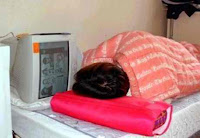Helping Your Aspergers Child to Make Friends: 10 Tips for Parents

Always an eccentric youngster, your child has now been diagnosed with Aspergers (or high functioning autism). The social world of kids is chaotic enough these days, but a child on the spectrum is particularly challenged. Nonetheless, with the parent’s help, an "Aspie" can find - and keep - friends. Here’s how: 1. Align your own expectations with reality. Know that the Aspergers youngster will probably not be popular, but can be happy and fulfilled with just one or two good friends. 2. Encourage your youngster to notice when other children are interested in him, because he may not pick up on attention. Impress upon him that it's important to remember classmate's names and use them in conversation. 3. Find a therapist who specializes in, or at least understands, children with Aspergers. Your child will have issues around being "different" that he must discuss with someone, preferably a qualified professional. He may need further help in setting s...


